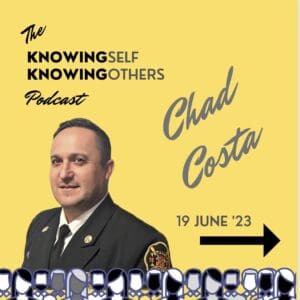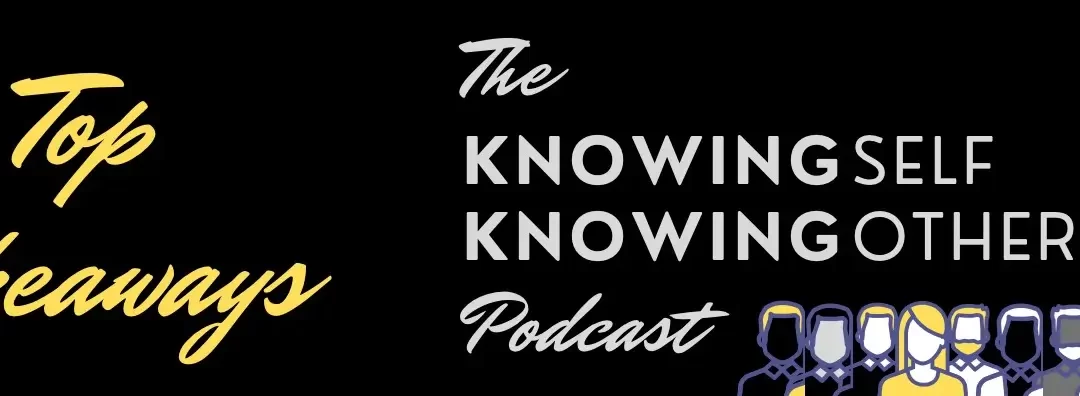Really enjoyed my conversation with Asst. Fire Chief of the City of Petaluma, California, Chad Costa in episode 23 of The Knowing Self Knowing Others Podcast. It was good to talk about self-aware leadership from someone who’s practicing it, reflecting on it and refining it in their practice every day. Here are my Top Takeaways from our discussion….
The job of a leader is about making people passional about wanting to get up in the morning and come to work, whilst being realistic about how levels of passion fluctuate with the realities of life.
You can’t hold others accountable for things you don’t hold yourself accountable for how can you ask others to change if you won’t change yourself? One of the failures of leadership is this idea that rank means you can hold yourself accountable to different standards to everybody else. By consciously behaving with humility and integrity it gives you the chance to make mistakes and learn from them

Informal leadership might just be more important than formal leadership. If you want to maintain credibility don’t rely on your position power and former leadership to get you through. Team leadership needs more than policies and procedures
Your self-awareness grows and develops throughout life and careers. Big life events like marriage, children, illness and bereavements change you. Partners, family and friends can help you hold up the mirror to reflect and re-evaluate your behaviour leading to inquiry, review and better decisions
Ignorance ego and a lack of self reflection could lead to significant detrimental impacts on others. Chad gives the example of a fire chief making decisions about a real life and death situation. Know yourself well enough so that you can best protect and keep others safe, and grow and be better in your role.
Informal leadership has greater affect and impact than formal leadership. The challenge is to develop a balance of formal relationship skill and informal relationship skill so that you can uphold the policies and procedures of the organisation whilst also operating with humanity care, humility and authenticity
Mentorship happens best when a mentor’s informal skills are evoked. When formal relationships are established there isn’t a guarantee of a connection between mentor and mentee meaning the mentorship might only have limited impact. It’s that informal relationship that creates that psychological safety and space to establish the most effective mentoring relationships where people can reflect and grow
The higher you go in an organisation the greater your purview of the organisation. With greater purview comes greater potential for greater impact, on your organisation and your community. The higher you go the more you need to develop your self-awareness skills to understand your impact and the consequences of that impact. Seniority doesn’t give you permission to reflect less. The weight of your badge doesn’t absolve you of having and developing self-awareness.
Develop the informal relationships and ask the difficult questions “how did I do?”, “should I do that differently next time?” and be ready to hear the difficult answers. When you get that feedback, be ready to action the answers. Don’t behave as if you want feedback and want to grow and then make no change when you get it. Asking for feedback and then not doing anything about it means your credibility will take a serious hit, and your reputation might not recover from that hit.

